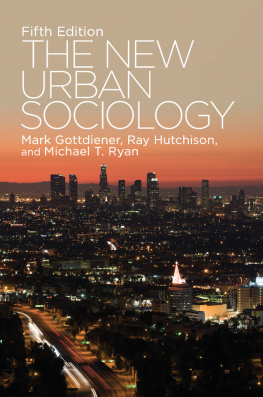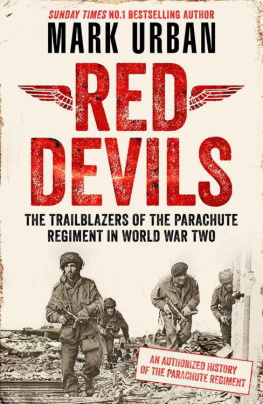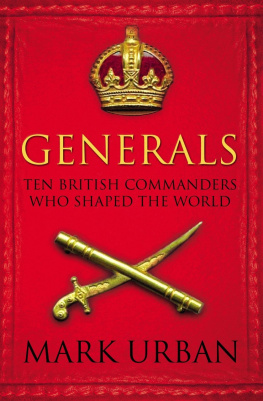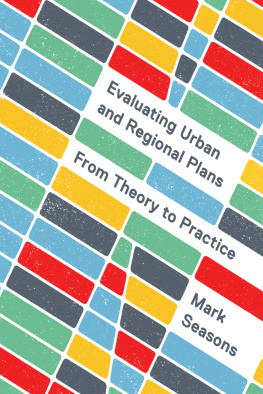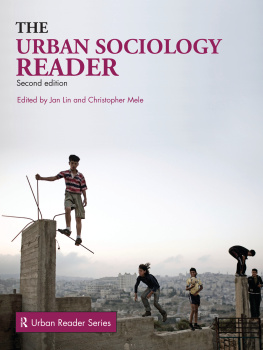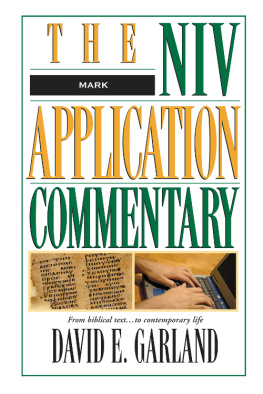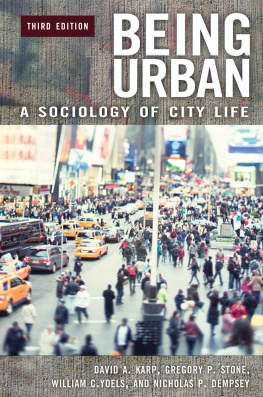Gottdiener Mark - The New Urban Sociology
Here you can read online Gottdiener Mark - The New Urban Sociology full text of the book (entire story) in english for free. Download pdf and epub, get meaning, cover and reviews about this ebook. City: Boulder, year: 2015, publisher: Routledge;Westview Press, genre: Science. Description of the work, (preface) as well as reviews are available. Best literature library LitArk.com created for fans of good reading and offers a wide selection of genres:
Romance novel
Science fiction
Adventure
Detective
Science
History
Home and family
Prose
Art
Politics
Computer
Non-fiction
Religion
Business
Children
Humor
Choose a favorite category and find really read worthwhile books. Enjoy immersion in the world of imagination, feel the emotions of the characters or learn something new for yourself, make an fascinating discovery.
- Book:The New Urban Sociology
- Author:
- Publisher:Routledge;Westview Press
- Genre:
- Year:2015
- City:Boulder
- Rating:3 / 5
- Favourites:Add to favourites
- Your mark:
- 60
- 1
- 2
- 3
- 4
- 5
The New Urban Sociology: summary, description and annotation
We offer to read an annotation, description, summary or preface (depends on what the author of the book "The New Urban Sociology" wrote himself). If you haven't found the necessary information about the book — write in the comments, we will try to find it.
The New Urban Sociology — read online for free the complete book (whole text) full work
Below is the text of the book, divided by pages. System saving the place of the last page read, allows you to conveniently read the book "The New Urban Sociology" online for free, without having to search again every time where you left off. Put a bookmark, and you can go to the page where you finished reading at any time.
Font size:
Interval:
Bookmark:

THE NEW URBAN SOCIOLOGY
Fifth Edition
Mark Gottdiener
University at Buffalo
Ray Hutchison
University of WisconsinGreen Bay
Michael T. Ryan
Dodge City Community College

First published 2015 by Westview Press
Published 2018 by Routledge
711 Third Avenue, New York, NY 10017, USA
2 Park Square, Milton Park, Abingdon, Oxon OX14 4RN
Routledge is an imprint of the Taylor & Francis Group, an informa business
Copyright 2015 by Taylor & Francis
All rights reserved. No part of this book may be reprinted or reproduced or utilised in any form or by any electronic, mechanical, or other means, now known or hereafter invented, including photocopying and recording, or in any information storage or retrieval system, without permission in writing from the publishers.
Notice:
Product or corporate names may be trademarks or registered trademarks, and are used only for identification and explanation without intent to infringe.
Every effort has been made to secure required permissions for all text, images,
maps, and other art reprinted in this volume.
Designed by Trish Wilkinson
Set in 10 point Adobe Garamond Pro
Library of Congress Cataloging-in-Publication Data
Gottdiener, Mark.
The new urban sociology / Mark Gottdiener, University at Buffalo, Ray
Hutchison, University of Wisconsin, Green Bay, Michael T. Ryan. Fifth
edition.
pages cm
Includes bibliographical references and index.
ISBN 978-0-8133-4956-5 (paperback) ISBN 978-0-8133-4957-2
(e-book) 1. Metropolitan areasUnited States. 2. SuburbsUnited States.
3. Suburban lifeUnited States. 4. UrbanizationUnited StatesHistory
5. Sociology, UrbanUnited States. 6. Sociology, Urban. 7. Urbanization.
I. Hutchison, Ray. II. Ryan, Michael T. III. Title.
HT334.U5G657 2014
307.7640973dc23 2014031609
ISBN 13: 978-0-8133-4956-5 (pbk)
Occasionally, a colleague will ask, Say, whats so new about The New Urban Sociology after all these years? It sounded frivolous at first, but we have come to realize that this is meant as a serious question.
So, what is still new about The New Urban Sociology? Our original formulation of the new paradigm dismantled the previous dominant approach of urban ecology grounded in neo-Classical economics with the market of many buyers and sellers as supreme along with its neo-Liberal political and planning prescriptions that weighted market solutions heavily despite government subsidies. The new urban sociology replaced this view with the more realistic one of an economy and political system hegemonically controlled by large, powerful interests that dominate our mixed economy, where government intervention usually favored those powerful interests. It is not a level playing field. To suggest that our view, along with the theory of Henri Lefebvre, and the political economy based on our perspective, are somehow not relevant to better planning, better control over our urban environments, and better management of job creation and profit making cannot be the case. The new urban sociology remains the best explanatory paradigm for the urban crisis, both current and past.
Despite the overwhelming reality of how everyday life is organized today in the United Statesand increasingly in developed countries elsewhereas a regional, expanding space that we call the mutlicentered metropolitan region, many urbanists persist in placing the term the city exclusively at the center of their analysis. They speak of world cities, edge cities, megacities. The immense regional spread of socioeconomic activity with multiple centers of economic activity and diverse forms of residential settlement have taken over many of the functions of the classical, historical central city itself. The City of London is still the financial center of the United Kingdom, but the City of London is but a small part of the city of London, which itself is part of a vast multicentered metropolitan region encompassing myriad residential, business, recreational, and government minicenters. New York City must be considered globally central, but when it is compared to London and Tokyo in the world cities literature, the reference is almost exclusively talking about Manhattan, and even more specifically, a small area of ManhattanWall Street and its attendant services and spin-off businesses. Looming as an immense regional agglomeration outside Manhattan is a vast expanse of urbanized, multicentered space encompassing parts of New Jersey and Connecticut, as well as dozens of New York State areas around the five boroughs of the city. In short, what remains still new is the basic need to grasp the size and internal dynamics of this new form of urban space that we call the multicentered metropolitan region.
Given the alternative approaches advertised by other urban sociology textbooks, we must ask how we can best help our students understand the current economic meltdown and its enduring impact on everyday lifesomething that can be explained directly, easily, and quite usefully by reading The New Urban Sociology s approach to the role of real estate speculation and investment.
It is a great pleasure to produce a fifth edition of this text that began as an idea of Mark Gottdieners in 1991 and was first published three years later. Alarmed that the original publisher planned to offer the third edition at the cost of $100 or more, we arranged for that edition to be put out by Westview in a paperback format. In this fifth edition, we have once again updated the material in previous editions to cover the persisting importance of understanding the new approach in order to explain the failures of the market and influence-controlled government intervention, the persistent and growing pattern of uneven development within metropolitan regions, and the critical need for increased social justice in dealing with persisting social, political, and economic problems of everyday urban life in the massive, multicentered metropolitan region. New cultural forms, new political struggles, new changes in the global positions of countries like India, Brazil, and China, new patterns of global labor sourcing and transnational corporate dynamics, new issues of social justice and environmental concerns, and the like in our urban society continue to make this edition of the New Urban Sociology as relevant today as it was when the first edition came out more than twenty years ago. We hope that it will be as useful in the classroom as have previous versions of this new paradigm.
The development of The New Urban Sociology through five editions has been an extended project. It could not have been accomplished without the crucial help provided by a number of people. We wish to thank friends in academia and beyond for their support: Andrew Austin, Bob Antonio, Karen Dalke, David Diaz, Joe Feagin, Kevin Gotham, Harvey Kay, Bruce Haynes, Chigon Kim, Nestor Rodriguez, Eric Monkkonen, Peter Muller, Sean Ryan, Mario Small, Leonard Wallock, and Talmadge Wright in the United States; Phil Gunn, Lena Lavinas, Sandra Lincioni, Circe Monteiro and Sueli Schiffer in Brazil; Jens Tonboe in Denmark; Lorenzo Tripodi in Germany; Alexandros Lagopoulos and Nikos Komninos in Greece; Mark Clapson and Chris Pickvance in England; Gabrielle Manella and Simone Giometti in Italy; Dorel Abraham in Romania; Lynn Smith in Scotland; Milan Prodanovic and Sonya Prodanovic in Serbia; and Richard Wolff in Switzerland.
Font size:
Interval:
Bookmark:
Similar books «The New Urban Sociology»
Look at similar books to The New Urban Sociology. We have selected literature similar in name and meaning in the hope of providing readers with more options to find new, interesting, not yet read works.
Discussion, reviews of the book The New Urban Sociology and just readers' own opinions. Leave your comments, write what you think about the work, its meaning or the main characters. Specify what exactly you liked and what you didn't like, and why you think so.

